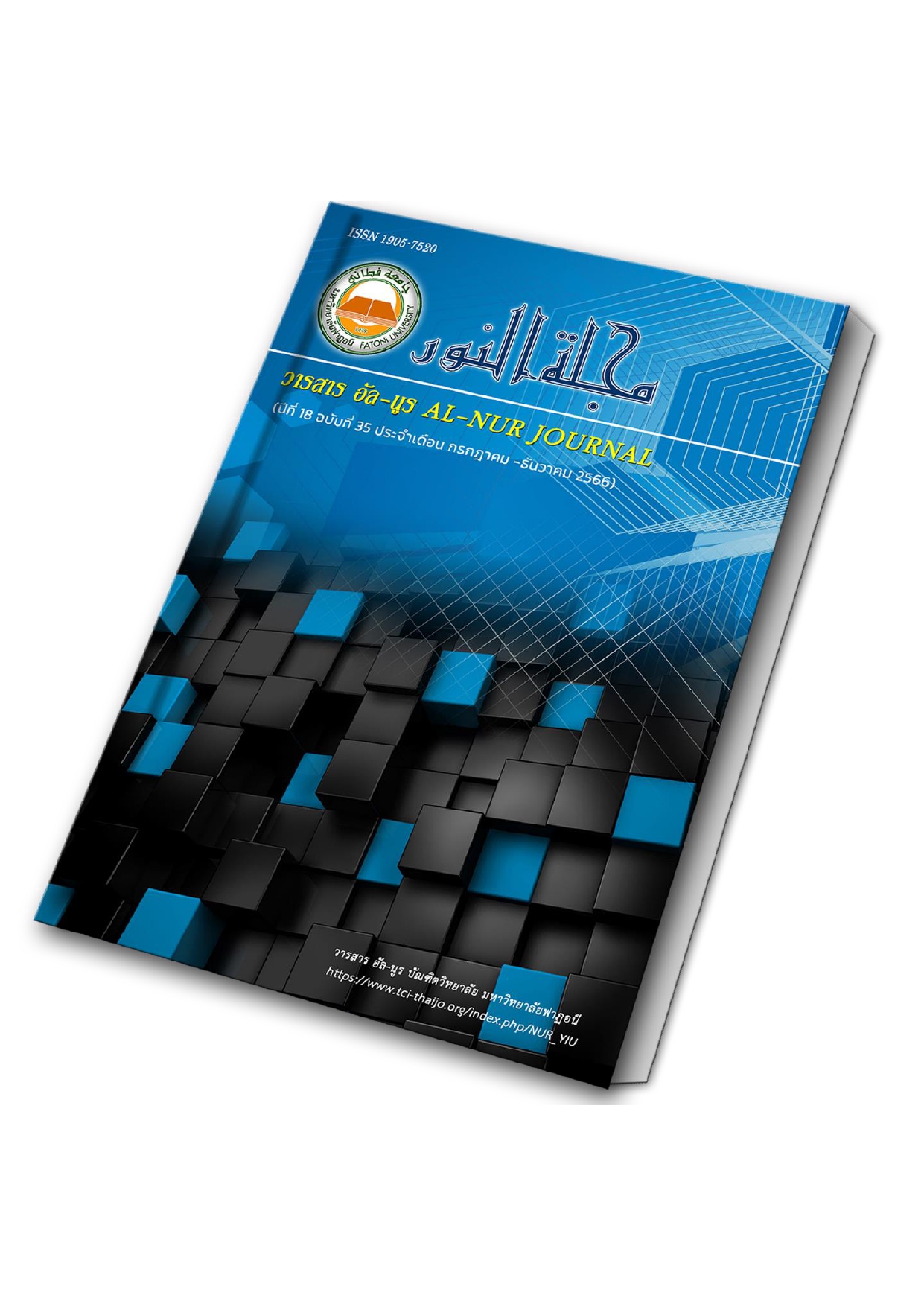Integrating Cultural and Religious Narratives through Role-Play: Elevating English Speaking Proficiency in a Post-Pandemic Islamic Secondary School in Yala, Thailand
Keywords:
Role-play in English instruction, English Conversation Skills, Local and religious content integration, Post-pandemic ; pedagogical shifts.Abstract
This study investigates the enhancement of English speaking skills among basic education students in Thailand, emphasizing role-playing as an alternative to traditional grammar-focused teaching methods. The study was conducted with secondary school students from an Islamic school in Yala province. Due to the COVID-19 pandemic's impact and the challenges of online teaching, these students faced increased learning obstacles. From our cohort, we selected 30 students, primarily those with previously low academic performances, as participants. Their English conversational abilities were evaluated before and after participating in 10 hours of intensive role-playing activities. Additionally, post-intervention student satisfaction was surveyed. Data analysis included means, standard deviations, and a sample t-test. Two key findings emerged: 1) role-playing significantly improved students' English speaking ability at a significance level of 0.05, and 2) there was a marked increase in student satisfaction with the role-playing teaching approach. The results underscore the potential of role-playing in fostering English conversational skills, suggesting a shift from traditional grammar-centric teaching. The research also advocates for integrating cultural, religious, and local narratives to enrich English learning experiences.
Keywords: Role-play in English instruction, English Conversation Skills, Local and religious content integration, Post-pandemic ; pedagogical shifts.
References
References:
• Chanthakan Praisri, Sorapon Jirasawat, & Sukhum Chalaysub. (2018). The use of role-play in teaching to develop English speaking skills of Mathayomsuksa 5 students. Graduate School, Suan Dusit Rajabhat University.
• Harmer, J. (2007). The practice of English language teaching (4th ed.). Pearson Education.
• Ishak, S. A., & Aziz, A. A. (2022). Role Play to Improve ESL Learners’ Communication Skills: A Systematic Review.
• Ketsuda Pong Lanka. (2007). A study of the use of role-playing activities to develop speaking abilities. Graduate school, Srinakharinwirot University.
• Krashen, S. (1982). Principles and Practice in Second Language Acquisition. Pergamon.
• Larsen-Freeman, D. (2014). Teaching language: From grammar to grammaring. Heinle Heinle.
• Lightbown, P. M., & Spada, N. (2013). How languages are learned (4th ed.). Oxford University Press.
• Ministry of Education. (2008). Basic Education Core Curriculum 2008. Thailand Agricultural Cooperative Assembly Printing House Limited, Bangkok.
• Natchaya Buppachat. (2018). The use of role-playing activities to develop English speaking skills for communication for students at the graduate school level. Silpakorn University.
• Nunan, D. (1999). Second language teaching & learning. Heinle & Heinle.
• Ondes, D. A. T., Leornas, S. S. C., Rud-gie, G. P., Gatera, M. D. D., & Caka, J. U. (2023). I SPEAK BETTER ENGLISH: TEACHERS’EXPERIENCES TOWARDS STUDENTS’ATTITUDE IN SPEAKING THE LANGUAGE. Indonesian Journal of Education (INJOE), 3(2), 190-201.
• Parisa Khamburi & Naphatheera Jawart. (2018). Learning management using role-playing to develop English speaking skills of Mathayomsuksa 1 students at Municipal School 2 (Wat Chong Lom). Chom Bueng Research University.
• Pikulthong, T., & Kerdnoonwong, S. (2022). An Implementation of Flipped Classroom Within Role-Play Technique to Develop English Speaking Skills of Prathomsuksa 6 Students. Doctoral dissertation, Srinakharinwirot University.
• Prachumchai, S., Sriraungrith, P., Yokanya, N., Thaongoen, S., & Lemons, R. (2023). A New Model of Diminutive Guide Camp to Develop Students’ English-Speaking Skills: A Case Study of Grade 9 Students at Niyomsilpanusorn School in Wichain Buri District of Phetchabun Province. Journal of Roi Kaensarn Academi, 8(4), 410-424.
• Putera, L. J. (2023). Integrating Local Customs in Mini-Drama Project to Improve Speaking Confidence and Promote Contextual and Fun Learning for Multilingual and Multiethnic EFL Classes: What Do College Students Think?. Journal on Education, 5(4), 16541-16552.
• Richards, J. C., & Rodgers, T. S. (2014). Approaches and methods in language teaching (3rd ed.). Cambridge University Press.
• Suchada Thipmontri. (2013). The effectiveness of using role-playing in teaching. "English for service". Prince of Songkhla University.
• Willis, D., & Willis, J. (2007). Doing task-based teaching. Oxford University Press.
• Wipasiri Jangsangtong. (2021). The development of English speaking skills in everyday life by using role-playing activities in the subject Thor 0011204 English for Communication of first year students. Thepsatri Rajabhat University.
Downloads
Published
Issue
Section
License
Copyright (c) 2024 Mahsoom Sateemae, Rusnat Noipom, Muhamatsakree Manyunu, Bilkis Akhter, Pratya Binmadnee, Apirak Tohtayong, Mayuti Duerama, Wuthisak Pitsuwan, Ilham Chenu, Adul Paichamnan

This work is licensed under a Creative Commons Attribution-NonCommercial-NoDerivatives 4.0 International License.
Proposed Creative Commons Copyright Notices


